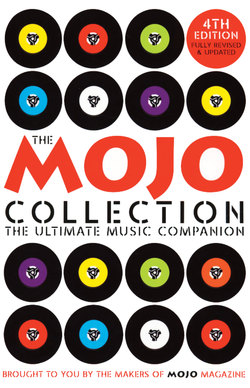Читать книгу The Mojo Collection - Various Mojo Magazine - Страница 156
На сайте Литреса книга снята с продажи.
Bee Gees Odessa Red velvet-covered double which almost killed them.
ОглавлениеRecord label: Polydor
Produced: Robert Stigwood and the Bee Gees
Recorded: New York, August–December 1968; De Lane Lea and IBC Studios, London; early 1968
Released: January 1969
Chart peaks: 10 (UK) 20 (US)
Personnel: Barry Gibb (v, g); Robin Gibb (v, o); Maurice Gibb (v, b, p, g); Colin Petersen (d); Paul Buckmaster (c); Bill Shepherd (m); P Wade, E Sharp, A Barber (e)
Track listing: Odessa (City On The Black Sea); You’ll Never See My Face Again; Black Diamond; Marley Purt Drive; Edison; Melody Fair; Suddenly; Whisper Whisper; Lamplight (S); Sound Of Love; Give Your Best; Seven Seas Symphony; With All Nations (International Anthem); I Laugh In Your Face; Never Say Never Again; First Of May (S); The British Opera
Running time: 63.47
Current CD: 825 451-2 omits: With All Nations
Further listening: Horizontal (1968); Idea (1968)
Further reading: The Bee Gees: Tales Of The Brothers Gibb (Hector Cook, 2003); www.beegeesonline.com
Download: Not currently legally available
Beautifully sung, delicately orchestrated and filled with highly individual songs about lost love, electric light and sinking ships, Odessa was the culmination of a burst of creativity which almost destroyed the Bee Gees before the ’70s had begun. Returning to the UK from Australia in early 1967, the Gibb brothers followed their breakthrough New York Mining Disaster 1941 with a further six hit singles and three highly successful albums in just 16 months. It was hardly surprising that by the time they re-entered the studio in 1968 some strain was beginning to show. While working titles such as Masterpeace and American Opera might suggest some grand artistic design, Barry Gibb recalls that the real motivation came from manager Robert Stigwood: ‘I think it was basically a financial deal. If we do a double album everyone makes more money – except the group. So we were doing something that we weren’t motivated to do and it became full of all this stuff that didn’t necessarily blow me away.’
Yet the finished work justified Stigwood’s faith in his young protegés. Opening with a dramatic swirl of strings, acoustic guitar and cello and the line ‘14th of February 1899, the British ship Veronica was lost without a sign,’ the dense, melancholy title track set the tone. Bill Shepherd’s sympathetic orchestration, which went far beyond mere sweetening – three of the tracks were instrumental – allowed the melodies to shine and in Sound Of Love and the Eleanor Rigby-influenced Melody Fair the Bee Gees produced two of their finest ballads. Less predictably, there were also nods towards American country rock: Marley Purt Drive was a deliciously languid number complete with electric piano, slide guitar and banjo.
Unfortunately, discord arising over the choice of the album’s single precipitated Robin’s departure to pursue a solo career: it would be another 18 months before all three brothers were reunited on one record. Yet Odessa remains one of the Bee Gees’ finest albums, a work of extraordinary depth of feeling and a fitting end to an important chapter in their career. With little nostalgia, Barry suggests the key to its success: ‘Maybe it’s because there was so much trouble and strife going on at the time. I think there’s probably a little bit of that in every song.’
